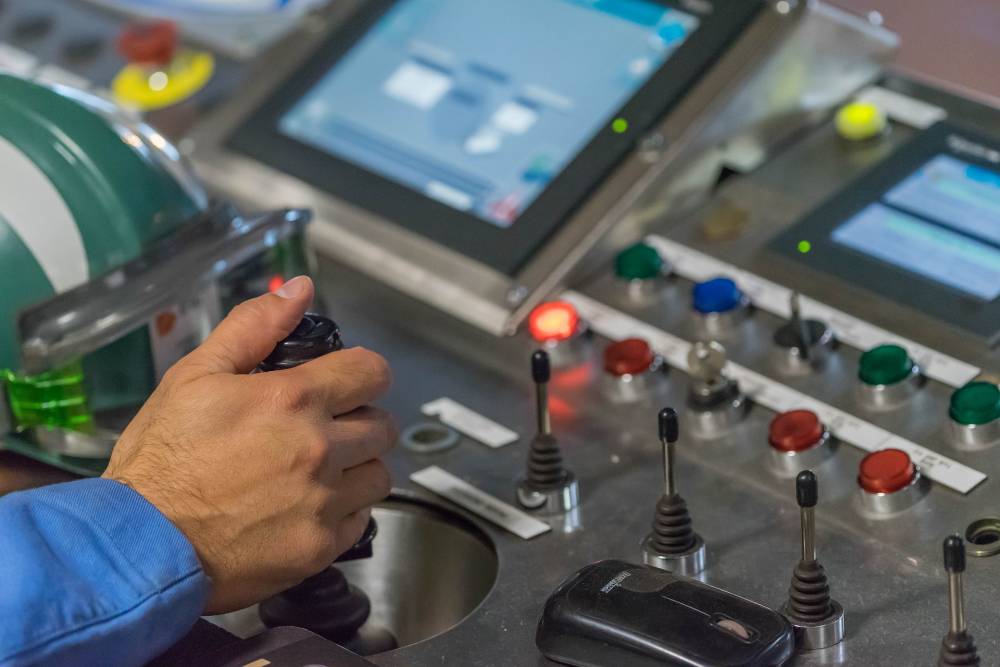
How AI Consulting Companies Are Transforming the Manufacturing Sector
In this post, we will show you how a trusted AI solution company can help your manufacturing company with implementing the digital twin technology, operational efficiency, predictive maintenance, quality control, and supply chain management.
AI consulting in the manufacturing sector: 5 elements
DIGITAL TWINS
Digital twins are virtual versions (or replicas) of physical machines, processes, or systems. Digital twins are created to understand what’s happening with a given machine that’s going through a given process. This way, manufacturing companies can duplicate real-life conditions in the digital world with no risks involved. As a result, they can predict the outcomes of specific changes/modifications or test various scenarios without the risk of damaging expensive equipment.
AI consulting companies help manufacturers in developing and integrating digital twins into their operations, thus allowing them to optimize those operations but also predict potential issues before they occur. This technology is also extremely helpful when it comes to testing new products or systems and implementing necessary corrections before the real process is deployed.
IMPROVED OPERATIONAL EFFICIENCY
AI comes in handy also when it comes to increasing the operational efficiency. AI consulting companies help manufacturers implement AI-powered systems that can handle repetitive tasks, analyze large datasets, and make decisions in real time. This results in lowered error rate, lowered costs, and increased productivity of a given production plant.
Operational efficiency can also be improved thanks to advanced AI-fueled data analytics. Thanks to this solution, manufacturers have better insights into their operations and outcomes. By analyzing data from all the available sources (e.g., IoT sensors, machines and other devices, as well as production logs), those AI systems can identify patterns and trends that can be used to optimize production.
PREDICTIVE MAINTENANCE
Predictive maintenance is yet another technology that uses AI algorithms to predict when machines or different types of equipment are likely to fail. This way, they can schedule maintenance before the failure occurs. Predictive maintenance systems are capable of analyzing such parameters as:
-
Temperature
-
Wear
-
Vibrations
-
Built-in alerts
To keep an eye on all your equipment, 24/7, all year round.
As you can see, predictive maintenance is heavily based on available data and maintenance history. With this technology in place, manufacturers can lower maintenance costs and downtimes because machines break down less often and require cheaper maintenance. Thanks to PM, the expected lifespan of your machines is also considerably longer.
Here, a trusted AI solution company can help you implement such a system by integrating sensors that continually monitor and collect data on your equipment’s condition as well as data analytics tools that analyze this information into your production facility.
QUALITY CONTROL
This question is extremely important in any manufacturing company. Nowadays, we have access to AI-powered quality control systems that use such technologies as machine learning and computer vision, which allow them to analyze images and sensor data from production lines in order to spot potential defects or deficiencies in the end product. Thanks to this technology, your company can quickly spot a faulty process/element and quickly fix it without any significant delays.
Combine that with AI-fueled data analytics, and your company can also get more insight into the root causes of each failure, thus enabling you to eliminate similar issues in the future. If you work with an AI consulting company, it will help you design and implement a quality control system that’s tailored to your company’s production processes and business profile.
SUPPLY CHAIN MANAGEMENT
Lastly, we want to mention supply chain management as one of the areas that AI can transform with ease. Here, advanced technologies help you with such vital questions as:
-
Demand forecasting
-
Inventory management
-
Logistics and transportation
-
Sourcing raw materials and semi-finished products
AI uses historical sales and production data as well as other available sources of information (e.g., market trends) to plan production and future demand with increased accuracy. In effect, manufacturing companies can operate at full speed in diverse market conditions because they always have access to all the relevant information they need. This translates to lowered risk of so-called dead stock, overproduction, and production interruptions.
AI-powered supply chain management also comes in handy concerning logistics and transportation of both raw materials and end products. AI can provide you with optimized routes, thus reducing transportation costs and shortening delivery times. Here, AI relies mostly on both historical and live traffic and weather data.
Wrapping up
If you run a manufacturing company, you have a tremendous growth opportunity in front of you – AI. This technology can be a real game-changer in your production business! And the best thing is that you don’t have to hire full-time AI specialists to implement the technologies and solutions we mention in this article. You can outsource this aspect of your business to a trusted AI solution company, such as Addepto. They will take care of the whole design and implementation process so that you can focus on doing your business. We encourage you to get in touch with them to see how AI can transform the way your company operates!

